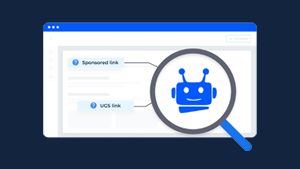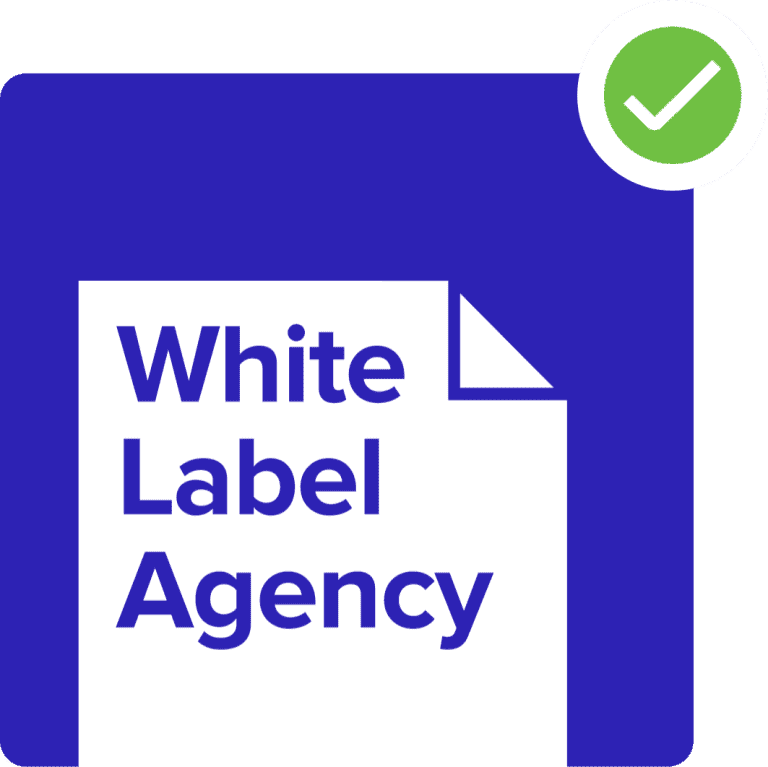In the vast landscape of the internet, links play a crucial role in establishing connections between websites. They serve as the currency of the web, allowing users to navigate seamlessly between different pages and enabling search engines to determine the relevance and authority of websites. However, not all links are created equal. In the digital age, understanding the nuances of link attributes such as nofollow, sponsored, and UGC (User-Generated Content) is essential for effective link building and search engine optimisation (SEO) strategies. In this article, we will decode the secrets behind nofollow, sponsored, & UGC link attributes and explore their significance in the modern digital landscape.
1- Nofollow Links: Limiting Search Engine Crawlers
Nofollow links, denoted by the “rel=nofollow” attribute in HTML, were introduced by search engines to combat spam and control the flow of link equity. When a nofollow attribute is applied to a link, it instructs search engine crawlers not to follow that particular link, preventing the transfer of authority or ranking power to the linked page. Nofollow links were initially designed for use in user-generated content and untrusted links, such as blog comments and forum posts. They help search engines differentiate between editorially-endorsed links and potentially manipulative ones.
While nofollow links do not directly contribute to improving a website’s search rankings, they still hold value. They can generate referral traffic, increase brand visibility, and enhance the overall credibility of a website. Furthermore, a natural link profile should include a mix of both nofollow and followed links, signalling to search engines the authenticity and diversity of a website’s backlink profile.
2- Sponsored Links: Disclosure and Advertising Transparency
Sponsored links, marked with the “rel=sponsored” attribute, are a result of the evolving advertising landscape. As online advertising becomes more prominent, search engines have introduced this attribute to ensure transparency and compliance with advertising regulations. When a link is marked as sponsored, it signals to search engines that the link is part of a paid promotion or advertising campaign.
By using the rel=sponsored attribute, website owners can disclose their sponsored content, maintaining ethical practices and protecting their website’s integrity. Search engines can also interpret these links appropriately, distinguishing them from editorially-given links when determining ranking signals. This differentiation helps search engines deliver more relevant and unbiased search results to users.
3- UGC Links: Harnessing the Power of User-Generated Content
UGC, or User-Generated Content, has gained tremendous popularity with the rise of social media and online communities. Websites that allow users to contribute content, such as forums, comment sections, or even guest blogging platforms, can benefit from UGC links. These links are designated with the “rel=ugc” attribute.
While UGC links may be created by users, they still hold significance in the eyes of search engines. When properly managed and moderated, UGC links can enhance a website’s authority and user engagement. It is crucial, however, to ensure that the UGC links are relevant, high-quality, and align with the website’s content guidelines. Implementing moderation measures, such as user reviews or comment approval systems, can help maintain the quality and integrity of UGC links.
Building Quality Backlinks: Techniques & Best Practices!
Now that we have a deeper understanding of the different link attributes, let’s explore some effective techniques and best practices for building quality backlinks.
- Content Relevance and Context: When pursuing backlinks, it’s crucial to prioritise relevance and context. Seek opportunities to acquire links from websites and pages that are closely related to your industry or niche. This helps search engines understand the thematic relevance of your website and strengthens your overall authority. Remember to provide valuable and informative content that naturally attracts links from authoritative sources.
- Outreach and Relationship Building: Establishing meaningful relationships with influencers, bloggers, and webmasters is a powerful approach to acquiring quality backlinks. Engage with relevant communities, participate in discussions, and contribute valuable insights. Personalised outreach can significantly increase your chances of securing editorially-given links, as building genuine connections often leads to organic link placements.
- Guest Blogging: Guest blogging remains an effective strategy for earning backlinks and showcasing your expertise to a wider audience. Look for reputable websites within your industry that accept guest contributions and provide valuable content that aligns with their audience’s interests. By incorporating relevant and natural backlinks within your guest posts, you can generate traffic, increase brand visibility, and enhance your website’s authority.
- Link Earning through Valuable Content: Create exceptional, shareable content that naturally attracts backlinks. By producing in-depth articles, research studies, infographics, or interactive tools, you can position yourself as a reliable source of information in your field. Invest in high-quality content that provides unique insights, addresses common challenges, or offers practical solutions. This not only encourages organic link building but also strengthens your website’s overall reputation and user engagement.
- Monitor and Disavow Toxic Links: Regularly monitor your backlink profile to identify and address any potentially harmful or toxic links. Use tools like Google Search Console, Ahrefs, or Moz to analyse your link profile and detect any suspicious or low-quality links. If you come across harmful links that could potentially harm your website’s ranking, take appropriate action by disavowing them through Google’s Disavow Tool. This helps ensure that search engines do not consider those links when evaluating your website’s authority.
Conclusion
In the dynamic digital landscape, understanding the intricacies of link attributes is vital for effective link building and SEO strategies. Nofollow links, sponsored links, and UGC links each have their specific purpose and significance. While nofollow links limit search engine crawlers, they can still contribute to traffic and credibility. Sponsored links ensure transparency in advertising practices, safeguarding a website’s reputation. UGC links harness the power of user-generated content, enabling user engagement and enhancing a website’s authority. By comprehending and leveraging these link attributes, brands and businesses can navigate the digital age with greater success and visibility.
Remember, a healthy backlink profile should include a combination of nofollow, sponsored, and UGC links. By incorporating these attributes strategically and in line with best practices, websites can build a diverse and robust link profile that supports their overall SEO goals.
As you embark on your link-building journey, consider partnering with OutreachGirls, your go-to link-building agency! With our range of services, including multilingual link-building, country-specific link-building, guest posting services, niche edit services, local citation building, and country-specific content writing, we are dedicated to helping you achieve your link-building and SEO objectives. Contact us today and unlock the true potential of your website’s linking strategy.
Author

Hammad, a dedicated writer at OutreachGirls.com, shares expert tips on outreach strategies and marketing techniques. His articles aim to empower readers with practical advice for effective communication and growth.
View all posts







